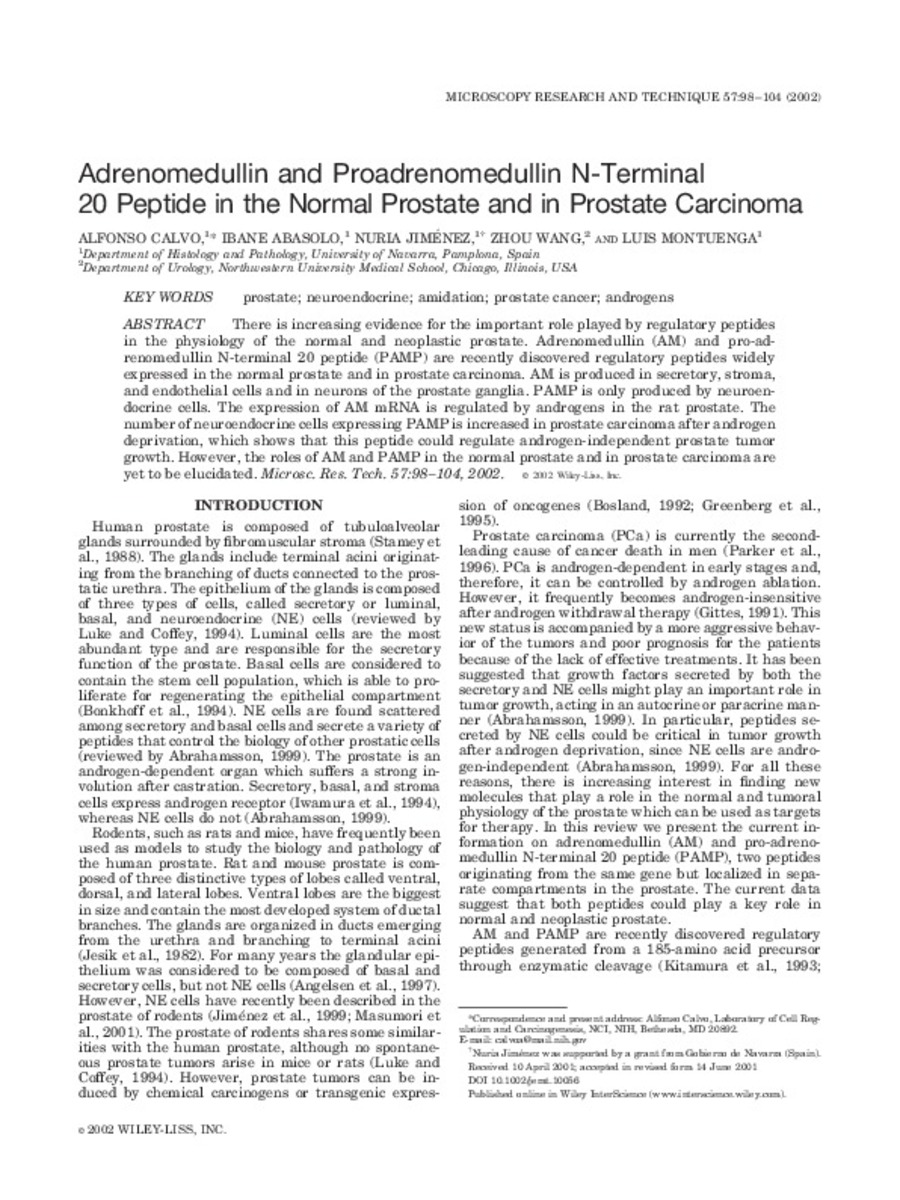Adrenomedullin and proadrenomedullin N-terminal 20 peptide in the normal prostate and in prostate carcinoma
Keywords:
Prostate
Neuroendocrine
Amidation
Prostate cancer
Androgens
Publisher:
Wiley Blackwell
Citation:
Calvo A, Abasolo I, Jimenez N, Wang Z, Montuenga L. Adrenomedullin and proadrenomedullin N-terminal 20 peptide in the normal prostate and in prostate carcinoma. Microsc Res Tech 2002 Apr 15;57(2):98-104.
Statistics and impact
0 citas en

0 citas en

Items in Dadun are protected by copyright, with all rights reserved, unless otherwise indicated.










